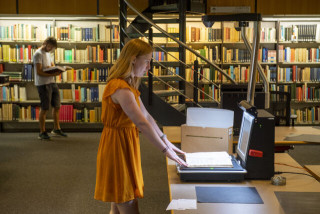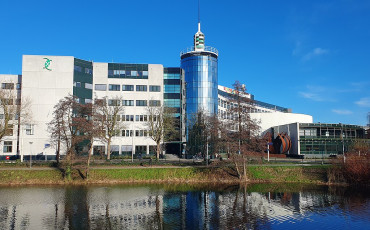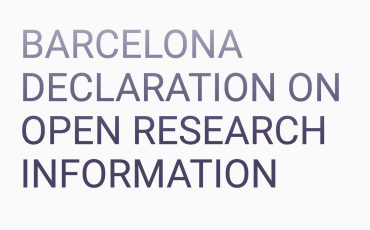Eileen Waegemaekers
Program Manager at SURF to further Open Science ambitions for all research… Meer over Eileen Waegemaekers
SURF has officially released the Open Research Information (ORI) Program 2025-2030, marking a significant milestone in the Netherlands' journey toward open research information. This program aims to fulfill the goal set by the SURF Members' Council:
"All information about Dutch publicly funded research and its results are openly available and reusable."
The program represents a coordinated effort across the Dutch research ecosystem to transition from dependence on closed commercial platforms to a federated, open infrastructure that upholds core academic values.

Building a Digital Commons for Research Information
The ORI program is fundamentally about creating a digital commons – a shared ecosystem where research information is treated as a public community asset under public governance. This approach directly addresses the growing concern about the sector's dependence on commercial platforms for managing and using research information, which poses risks to the openness, accessibility, and transparency that are essential to academic integrity.
Four Strategic Pillars
The ORI program is structured around four interconnected strategic goals that will guide activities from 2025 to 2030:
1. Stronger Foundation for Open Research Information
This pillar focuses on establishing the fundamental infrastructure needed for open research information exchange. Key areas include:
2. Higher Quality and Coverage of Metadata in Diverse Research Processes
Moving beyond the traditional focus on publishing and deposit processes, this goal aims to capture metadata from across the entire research lifecycle:
3. Deeper Connections and Enrichments
This pillar focuses on creating a federated system that can aggregate and enrich individual records based on collective input:
4. Better Visibility, Usability, and Sustainability
Ensuring that open research information reaches its intended users and remains accessible long-term:
Community-Driven Approach
What makes the ORI program unique is its collaborative approach. Rather than operating through directive mandates, SURF relies on shared vision, influence, and soft power to drive transformation. The program recognizes that institutions are the true agents of change, while SURF's role is to facilitate, coordinate, and inspire action.
The program employs a dual strategy of monitoring and communication:
Governance and Organization
The program operates within SURF's Innovation Zone Strengthening Open Science, with a clear governance structure:
What's Next?
The ORI program officially kicked off in 2025 and will run through 2030. The program team will develop annual work plans specifying projects and their contributions to strategic goals, with progress tracked through the OKR framework and shared transparently with the community.
For the ORI community, this program represents both an opportunity and a responsibility. Success depends on active participation from research institutions, libraries, and other stakeholders across the Netherlands. The transition to open research information is not just about technology and infrastructure – it's about preserving and strengthening the values that make academic research trustworthy, accessible, and beneficial to society.
The full ORI Program 2025-2030 is available with DOI: 10.5281/zenodo.15772562 and is licensed under CC-BY 4.0 for open sharing and reuse.
Program Manager at SURF to further Open Science ambitions for all research… Meer over Eileen Waegemaekers



0 Praat mee